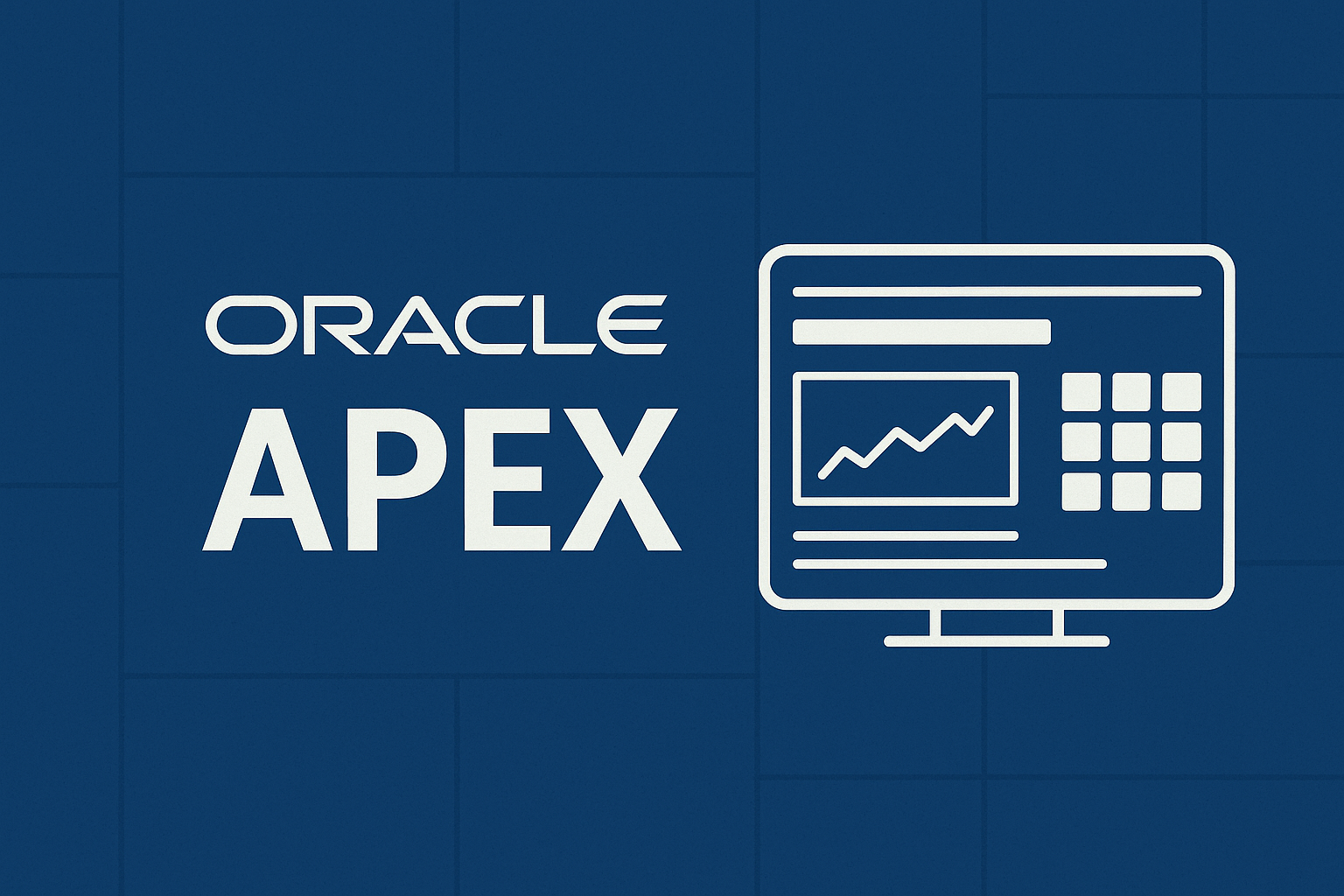In many organizations, critical business processes run on spreadsheets. Whether it’s financial forecasting, project tracking, or compliance reporting, Excel remains a go-to tool. However, as organizations scale, spreadsheets become a liability—difficult to audit, hard to maintain, and vulnerable to version chaos. That’s where Oracle APEX steps in.
Oracle APEX (Application Express) is a low-code development platform that allows teams to rapidly build secure, scalable web applications on top of Oracle databases. With it, organizations can take spreadsheets—once siloed, fragile files—and turn them into fully interactive, multi-user apps with enterprise-grade features.
In this blog, we’ll explore how you can digitize your spreadsheets using Oracle APEX, and why it’s a smart move for operational efficiency, security, and scalability.
Excel is incredibly flexible, but it wasn’t designed for multi-user environments or enterprise-grade control. Some common issues include:
No audit trail: It’s hard to track who made changes and when.
Lack of validation: Data entry errors are common and hard to catch.
Version confusion: Multiple versions of the same file create chaos.
Limited collaboration: Simultaneous editing can lead to data loss or corruption.
Oracle APEX solves all of these problems, making it a perfect solution for digitizing mission-critical spreadsheets.
Oracle APEX is a browser-based, low-code platform that lets you build powerful web applications without deep programming knowledge. It runs entirely within the Oracle Database, meaning your apps are fast, secure, and highly scalable by default.
Organizations using Oracle APEX benefit from:
Rapid development with built-in components
Enterprise-level security and scalability
Seamless integration with Oracle data and APIs
No need for external web servers or middleware

1. Import Your Excel File
Oracle APEX includes a simple wizard to import spreadsheet data directly into a new or existing database table. This sets the foundation for your application.
2. Generate an Interactive Web App
After importing the data, you can use APEX’s Application Builder to automatically generate a fully functional CRUD (Create, Read, Update, Delete) web interface. This gives users an intuitive interface to interact with the data—without touching the database backend.
3. Add Business Logic and Validations
One of APEX’s strengths is its robust support for business rules. Add validations directly into forms to ensure only clean, accurate data gets stored. You can create:
Field-level validations (e.g., date formats, required fields)
Cross-field checks (e.g., budget end date > start date)
Conditional logic (e.g., hide fields unless a checkbox is selected)
4. Implement Role-Based Access
Security is critical. Oracle APEX makes it easy to define user roles and grant access accordingly. For instance:
View-only access for executives
Edit access for department leads
Admin access for system managers
Each user sees only the data and functions relevant to them, improving both security and usability.
5. Enable Version Control and Auditing
Spreadsheets lack traceability. Oracle APEX lets you implement full audit logging to track:
Who made what change
When it was made
What the previous value was
You can also implement version control mechanisms or change approval workflows, making your app compliant with regulatory standards like SOX, HIPAA, or GDPR.
Oracle APEX offers additional features that supercharge your new app:
Dashboards & Charts: Visualize your data with built-in charting and dashboard tools.
Mobile Responsiveness: All apps are automatically mobile-friendly.
Email & Alerts: Trigger notifications based on data conditions or user actions.
REST Integration: Connect with external systems for enhanced functionality.
Excel has its place, but when your spreadsheet becomes central to your business process, it’s time to digitize. Oracle APEX gives organizations a powerful, scalable way to turn spreadsheets into secure, auditable, and user-friendly web applications. With features like validations, role-based access, and version control, it’s the ideal platform to modernize and streamline business workflows.
If you’re still running your operations on Excel, it might be time to upgrade. With Oracle APEX, the future of your data is just a few clicks away.
Contact us now, to get started on your Oracle Apex journey or if you hesitate and need more information, visit our website: www.datatronic.ai or www.datatronic.hu.

To provide the best experiences, we and our partners use technologies like cookies to store and/or access device information. Consenting to these technologies will allow us and our partners to process personal data such as browsing behavior or unique IDs on this site and show (non-) personalized ads. Not consenting or withdrawing consent, may adversely affect certain features and functions.
Click below to consent to the above or make granular choices. Your choices will be applied to this site only. You can change your settings at any time, including withdrawing your consent, by using the toggles on the Cookie Policy, or by clicking on the manage consent button at the bottom of the screen.